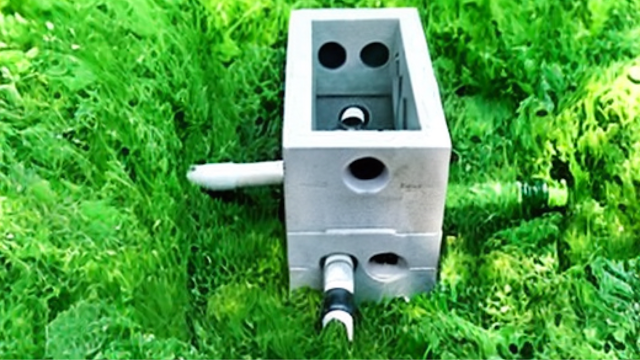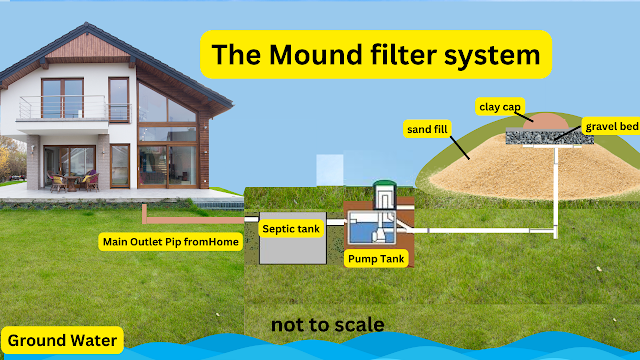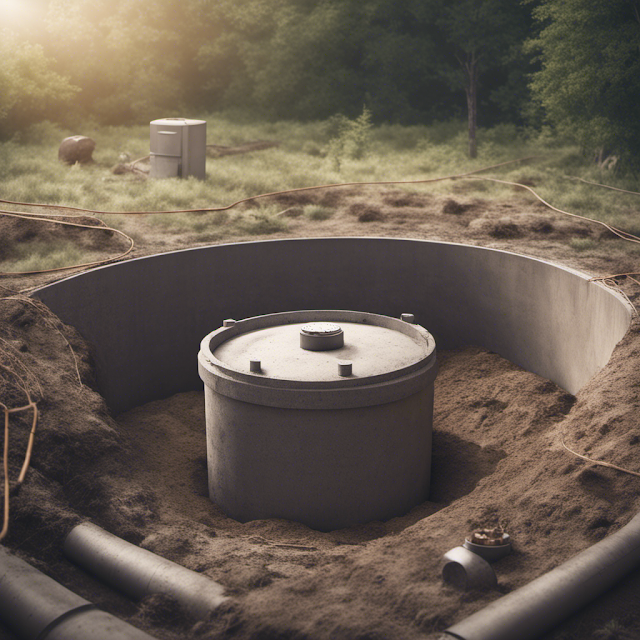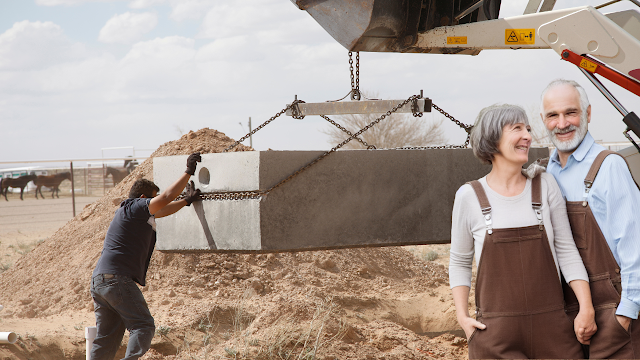What are the signs that your Septic Tank is Full ll: 10 Warning Signs You Shouldn't Ignore
Introduction
Your septic tank is a crucial part of your home's plumbing system. It's responsible for safely disposing of the waste that comes from your household. However, over time, your septic tank can become full, leading to a host of problems. Knowing the warning signs of a full septic tank can help you avoid costly repairs or even replacing the entire system. In this article, we will discuss the ten warning signs you should look out for.
Navigating the complex world of septic systems can seem overwhelming, but rest assured, you're not alone! With over four decades of combined experience, my partner Jeane and I have tackled numerous challenges and encountered various situations in this intricate field. Our mission is to share our invaluable knowledge with both seasoned septic system owners and newcomers alike. This blog is dedicated to providing essential insights and tips on a range of topics including the telltale signs your Septic Tank is Full.
Slow Drains
Slow drains are a common warning sign of a full septic tank. When your septic tank becomes full, it can cause a blockage that slows down the draining process. If you notice that your sinks, tubs, and showers are draining more slowly than usual, it's a sign that your septic tank may be full. Slow drains that affect every fixture in your home suggest that the problem is with your septic tank and not a clog in a single drain.
To prevent this problem, it's essential to get your septic tank pumped regularly. The frequency of pumping depends on the size of your tank, the number of people living in your home, and your water usage. A professional septic service can help you determine how often you should pump your septic tank.
Foul Odor
Another common warning sign of a full septic tank is a foul odor. A pungent smell like rotten eggs is a telltale sign that your septic tank is full. This smell can be strong enough to permeate your entire home. If you notice this smell, it's essential to address the problem immediately.
To avoid this problem, make sure to use septic-safe products and avoid flushing non-biodegradable items down the toilet. You should also get your septic tank pumped regularly to prevent the buildup of waste.
Backups
If you experience backups in your home's lower drains, such as those in the basement, it's a clear sign that your septic tank is full. The wastewater has nowhere to go but back up into your home. This can be a messy and unpleasant problem to deal with.
To prevent this problem, it's essential to get your septic tank pumped regularly. You should also avoid flushing non-biodegradable items down the toilet, as they can cause clogs and backups.
Green Grass
If you notice an area of exceptionally lush grass or vegetation growing above or around your septic tank, it could be a sign of a full septic tank. The sludge that sits at the bottom of the tank can rise and go through your outlet pipe with the liquid waste, causing excess nutrients to be released into the soil.
To prevent this problem, make sure to get your septic tank pumped regularly. You should also avoid parking vehicles or heavy equipment over your septic tank, as it can damage the system and lead to leaks.
.png) |
| Septic Tank making Grass Greener |
Gurgling Sounds
Gurgling sounds in your pipes when flushing the toilet or emptying the bathtub can indicate a full septic tank. If the sound persists even after a professional spot-check, it's time to get your septic tank pumped.
To prevent this problem, make sure to get your septic tank pumped regularly. You should also avoid flushing non-biodegradable items down the toilet, as they can cause clogs and backups.
Water Pooling
Water pooling around your septic tank is a clear indication that the waste level exceeds the tank's capacity. This pooling water will still be present even after the rains have stopped.
To prevent this problem, make sure to have your septic tank pumped regularly. You should also avoid planting trees or other vegetation near your septic tank, as their roots can infiltrate the system and cause damage.
Soggy Ground
Soggy or marshy ground around your septic tank is a sign of a full septic tank. The excess water from the tank can leak out and saturate the soil, leading to standing water and muddy conditions.
To prevent this problem, make sure to get your septic tank pumped regularly. You should also avoid parking vehicles or heavy equipment over your septic tank, as it can damage the system and lead to leaks.
High Nitrate Levels
High nitrate levels in your well water can indicate a full septic tank. Nitrate is a naturally occurring compound that is found in fertilizers, sewage, and animal waste. When your septic tank is full, it can release excess nitrate into the surrounding soil and groundwater.
To prevent this problem, make sure to get your septic tank pumped regularly. You should also avoid using too much fertilizer on your lawn, as it can contribute to excess nitrate levels in the soil.
Sewer Backup
A sewer backup is a serious problem that can occur when your septic tank is full. If wastewater backs up into your home, it can cause damage to your floors, walls, and other surfaces. It can also create an unsanitary and unpleasant environment.
To prevent this problem, make sure to get your septic tank pumped regularly. You should also avoid flushing non-biodegradable items down the toilet, as they can cause clogs and backups.
High Water Bill
If you notice a sudden increase in your water bill, it could be a sign of a full septic tank. A full septic tank can cause excess water usage, leading to a higher bill.
To prevent this problem, make sure to get your septic tank pumped regularly. You should also fix any leaks in your plumbing system promptly, as they can contribute to excess water usage.
It's not always that your Tank Septic Tank is Full: see below and take note.
Signs of a Damaged Septic Tank
A damaged septic tank can lead to numerous problems for homeowners, ranging from unpleasant odors to costly repairs. It is essential to understand the signs of a damaged septic tank and differentiate between them and those indicating a full septic tank. In this article, we will explore various signs of a damaged septic tank and how to identify them.
Recognizing the Difference: Full vs. Damaged Septic Tanks
Before diving into the signs of a damaged septic tank, it's crucial to distinguish between a full and a damaged septic tank. A full septic tank typically exhibits slow drains, foul odors, and backups, while a damaged septic tank might have cracks, leaks, or other structural issues.
Cracks and Leaks
One of the most apparent signs of a damaged septic tank is visible cracks or leaks. These can appear on the tank itself or in the connecting pipes. If you notice any cracks, it's essential to address the issue promptly, as they can lead to more severe damage and costly repairs.
Persistent Foul Odors
While foul odors can also indicate a full septic tank, persistent smells that linger even after pumping the tank might suggest damage. This could be due to a damaged tank or pipe allowing sewage to leak into the surrounding soil.
Sudden Sinkholes or Depressions in Your Yard
A damaged septic tank can cause sudden sinkholes or depressions to form in your yard. These often occur when a tank collapses or when the soil above a damaged pipe erodes. If you notice any unusual dips in your yard, it is crucial to contact a septic professional to assess the situation.
Frequent Backups or Slow Drains
While slow drains and backups can also signify a full septic tank, if these issues persist even after having your tank pumped, it might point to a damaged septic tank or system. In such cases, it's essential to have a professional evaluate your septic system to determine if repairs or replacements are necessary.
Unusually Green or Lush Vegetation
Just like with a full septic tank, unusually green or lush vegetation around your septic tank could indicate damage. However, if this issue persists even after having your tank pumped, it might suggest a damaged tank or pipe allowing excess nutrients to seep into the soil.
Pooling Water or Soggy Soil
While pooling water or soggy soil can also be signs of a full septic tank, if these issues continue even after pumping, it could signal damage to your septic system. A damaged tank or pipe might be leaking wastewater, causing the surrounding soil to become saturated.
High Nitrate Levels in Well Water
Elevated nitrate levels in your well water can be a sign of a damaged septic tank or system. This typically occurs when a damaged tank or pipe releases excess nitrates into the surrounding soil and groundwater. If you suspect this issue, it's essential to have your water tested and consult a professional to address the problem.
Frequent Need for Pumping
If you find yourself needing to pump your septic tank more frequently than usual, it might be due to a damaged tank or system. A damaged tank might not hold as much wastewater as it should, causing it to fill up more quickly.
Ineffective Drain Field
An ineffective drain field can also be a sign of a damaged septic tank or system. This occurs when the drain field is unable to properly treat and disperse wastewater, possibly due to damage to the septic tank or pipes. If your drain field is not functioning correctly, it's crucial to have a professional inspect your septic system.
In conclusion, understanding the signs of a damaged septic tank is crucial to
maintaining a healthy and efficient septic system. By being able to differentiate between the signs of a full septic tank and those of a damaged or malfunctioning one, you can take the necessary steps to address the problem and prevent costly repairs or replacements.
If you suspect that your septic tank may be damaged, it's essential to consult a professional septic service provider for a thorough inspection and assessment of your system. They can determine the cause of the issue and recommend the appropriate course of action, whether it's repairing or replacing the damaged components.
Moreover, it's crucial to establish a routine septic system maintenance plan to prevent damage and ensure the longevity of your septic tank. This includes regular inspections, pumping, and addressing any potential issues promptly. By staying proactive with septic tank care, you can avoid the headaches and expenses associated with a damaged or malfunctioning system.
In summary, it's essential to recognize the signs of a damaged septic tank and address them promptly. By taking a proactive approach to septic system maintenance, you can prevent damage, extend the life of your system, and ensure that your home's plumbing remains in optimal condition. Keep an eye out for the warning signs discussed in this article, and don't hesitate to consult a professional septic service provider for guidance and assistance.
Risks of Neglecting Septic Tank Maintenance
Septic tank maintenance is an essential aspect of homeownership that often gets overlooked. However, neglecting your septic system can lead to various risks, including health hazards, property damage, and increased repair or replacement costs. In this article, we'll delve into these risks and discuss the importance of regular septic tank maintenance.
Health Hazards
One of the most significant risks associated with neglecting septic tank maintenance is the potential for health hazards. When a septic system is not properly maintained, it can become overloaded, leading to wastewater overflowing and contaminating the surrounding soil and groundwater.
This contamination can lead to the spread of harmful bacteria, viruses, and parasites. In turn, these pathogens can cause various illnesses, such as gastrointestinal issues, skin infections, and other health problems. By regularly maintaining your septic system, you can prevent these health risks and ensure a safe and sanitary environment for you and your family.
Property Damage
Another risk of neglecting septic tank maintenance is property damage. When a septic system becomes overloaded or damaged, wastewater can back up into your home, causing damage to your floors, walls, and other surfaces. This damage can be costly to repair and may even require extensive renovations.
In addition, a damaged or failing septic system can lead to unpleasant odors, which can negatively impact your home's comfort and value. By keeping up with regular septic tank maintenance, you can avoid these issues and protect your property from damage.
Increased Repair and Replacement Costs
Neglecting septic tank maintenance can also result in increased repair or replacement costs. As problems with your septic system go unresolved, they can worsen over time, leading to more extensive and expensive repairs.
In some cases, the damage may be so severe that a complete septic system replacement is necessary. By maintaining your septic tank regularly, you can catch potential issues early on and address them before they escalate into more significant, costly problems.
Environmental Impact
A poorly maintained septic system can have adverse effects on the environment. When a septic tank overflows or leaks, it can contaminate nearby water sources, such as streams, rivers, and lakes. This contamination can harm aquatic life and disrupt local ecosystems.
Additionally, overflowing or leaking septic systems can contribute to nutrient pollution, which can lead to harmful algal blooms and decreased water quality. Regular septic tank maintenance can help prevent these environmental issues and protect the ecosystems around your property.
Decreased Property Value
A neglected septic system can also negatively impact your property's value. Potential buyers are likely to be wary of a home with a poorly maintained septic system, as it can lead to costly repairs and potential health risks.
By regularly maintaining your septic tank and ensuring that it is functioning correctly, you can preserve your property's value and make it more attractive to potential buyers.
Tips for Proper Septic Tank Maintenance
To avoid the risks associated with neglecting septic tank maintenance, it's essential to establish a regular maintenance routine. Some tips for maintaining your septic system include:
Schedule regular septic tank inspections: Experts recommend having your septic tank inspected every one to three years, depending on your household size and usage. Regular inspections can help identify potential issues early on and prevent costly repairs.
Pump your septic tank regularly: The frequency of septic tank pumping varies depending on the size of your tank and your household's water usage. On average, homeowners should have their septic tanks pumped every three to five years.
Be mindful of what goes down your drains: Avoid flushing non-biodegradable items, such as wipes, diapers, and feminine hygiene products, down the toilet. These items can cause clogs and backups in your septic system. Additionally, avoid pouring grease, oil, and harsh chemicals down your drains, as they can disrupt the natural balance of bacteria within your septic tank and cause issues with the system.
Conserve water: Excessive water usage can overload your septic system, leading to potential problems. Implement water-saving measures, such as fixing leaks promptly, installing low-flow fixtures, and using water-efficient appliances.
Maintain the drain field: Your septic system's drain field plays a crucial role in treating and dispersing wastewater. To keep it functioning properly, avoid parking vehicles or placing heavy objects on the drain field, and ensure that surface water runoff is directed away from the area.
Use septic-safe products: Choose cleaning products and household chemicals that are labeled as septic-safe, as they will be less likely to disrupt the bacterial balance within your septic tank.
By following these maintenance tips and staying proactive with septic system care, you can avoid the risks associated with neglecting septic tank maintenance, protect your property, and ensure a safe and healthy environment for you and your family.
In conclusion
FAQs
1.How often should I get my septic tank pumped?
Most septic services recommend that you get your septic tank pumped every 3-5 years. However, the frequency of pumping can vary depending on the size of your tank and the amount of wastewater your home produces. A professional septic service can help you determine the best pumping schedule for your specific needs.
2.What happens during a septic tank pumping?
During a septic tank pumping, a professional septic service will remove the solid and liquid waste from your tank using a specialized vacuum truck. They will also inspect the tank and its components for any signs of damage or wear.
3.Can I pump my own septic tank?
No, it is not recommended to pump your own septic tank. Septic tanks can contain harmful bacteria and gases that can be dangerous to handle without proper equipment and training. It's best to leave septic tank pumping to the professionals.
.png) |
| Use the Right Equipment or get a septic tank cleaning service |
4.How can I tell if my septic tank is full?
There are several signs that your septic tank is full, including slow drains, foul odors, gurgling sounds in your pipes, and sewage backups in your home. If you suspect that your septic tank is full, it's best to consult a professional septic service for an inspection.
5.What can I do to maintain my septic system?
To maintain your septic system, you should get your tank pumped regularly, avoid flushing non-biodegradable items down the toilet, and conserve water whenever possible. You should also avoid planting trees or vegetation near your septic tank and have your system inspected and maintained by a professional septic service.
6.Can I use a garbage disposal with a septic system?
While it's not recommended, you can use a garbage disposal with a septic system as long as you use it sparingly and avoid putting non-biodegradable items down the drain. However, using a garbage disposal can increase the amount of solid waste in your septic tank, leading to more frequent pumping.
7.Can I use bleach or other harsh chemicals with a septic system?
It's best to avoid using bleach or other harsh chemicals with a septic system, as they can harm the beneficial bacteria that break down solid waste in your tank. Instead, use natural cleaning products or septic-safe alternatives.
8.What should I do if my septic system fails?
If your septic system fails, it's best to contact a professional septic service as soon as possible. They can diagnose the problem and recommend the best course of action, whether it's repair, replacement, or other options.
9.Can I drive over my septic tank?
No, you should avoid driving over your septic tank or any other part of your septic system. The weight of a vehicle can damage the components of your system and cause leaks or other problems.
10.Can I add bacteria or other additives to my septic tank?
While there are many products on the market that claim to boost the performance of your septic system, it's not necessary to add bacteria or other additives to your tank. In fact, some additives can harm the beneficial bacteria in your system and cause more harm than good.
11.Can I plant a garden over my septic system?
No, you should avoid planting a garden or other vegetation over your septic system. The roots of plants can infiltrate your system and cause damage, leading to costly repairs or replacements.
12.How long do septic systems last?
With proper maintenance, septic systems can last for many years. The lifespan of a septic system can vary depending on factors like the size of the tank, the type of soil in your area, and the amount of use it receives. Generally, a well-maintained septic system can last anywhere from 20-30 years or more.
13.Can I install a septic system myself?
No, it's not recommended to install a septic system yourself. Septic systems require specialized knowledge and equipment to install properly, and improper installation can lead to serious problems down the line. It's best to leave septic system installation to the professionals.
14.Can heavy rain or flooding affect my septic system?
Yes, heavy rain or flooding can affect your septic system by causing the drain field to become oversaturated with water, which can lead to system failure. If you live in an area prone to heavy rain or flooding, it's important to have your septic system inspected regularly and to take steps to prevent water from pooling around your drain field.
15.Can a septic system be repaired, or does it need to be replaced?
In many cases, a septic system can be repaired rather than replaced. However, the extent of the damage and the age of the system will determine whether repair or replacement is the best option. A professional septic service can evaluate your system and recommend the most cost-effective solution.
16.How can I prevent sewage backups in my home?
To prevent sewage backups in your home, you should avoid flushing non-biodegradable items down the toilet, such as feminine hygiene products, wipes, and paper towels. You should also conserve water and avoid using large amounts of water all at once, which can overwhelm your septic system. Regular septic maintenance and inspections can also help prevent backups.
17.Can I build over my septic system?
No, you should avoid building any structures over your septic system, including sheds, decks, or additions to your home. Building over your septic system can cause damage to the components and make maintenance and repairs more difficult.
18.How do I locate my septic tank?
If you're not sure where your septic tank is located, a professional septic service can help you locate it using specialized equipment. You can also look for signs of a septic system on your property, such as a raised mound of soil or a vent pipe sticking out of the ground.
19.How much does septic system maintenance cost?
The cost of septic system maintenance can vary depending on factors like the size of your tank, the frequency of pumping, and the cost of any repairs or replacements. However, regular maintenance is generally much less expensive than major repairs or system replacements. See the best additive option here
20.Can I sell my home if my septic system is failing?
If your septic system is failing, it can be difficult to sell your home until the problem is resolved. However, with the help of a professional septic service, you can diagnose and repair the issue and make your home marketable again. It's important to disclose any known septic issues to potential buyers to avoid legal issues down the line.

.png)
.png)
.png)
.png)
.png)



.png)






Comments
Post a Comment